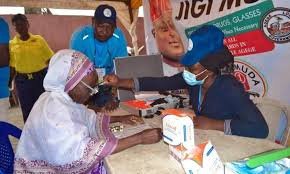
ABUJA, Nigeria – Nigeria’s efforts to curb tobacco harm have suffered a blow as a new global index shows tobacco companies expanding their influence in policy spaces despite laws designed to restrict their access.
The 2025 Nigeria Tobacco Industry Interference (TII) Index, released Thursday by CAPPA, reveals the country’s interference score worsened from 60 to 62, ranking Nigeria 54th out of 100 countries assessed.
Executive Director, CAPPA, Akinbode Oluwafemi said the findings expose how tobacco companies continue to portray themselves as development partners while running “businesses of addiction, disease and death.” He said Nigeria loses an estimated ₦634 billion annually to tobacco-related illnesses and productivity losses, with roughly 29,000 deaths each year.
According to the index, tobacco companies are increasingly using corporate social responsibility activities—scholarships, boreholes, fish farms and environmental donations—to whitewash their image and gain proximity to government officials. “These are not acts of charity,” Oluwafemi said. “They are calculated attempts to buy legitimacy, in breach of the law.”
The report also raises concerns over government officials’ attendance at tobacco-sponsored events, which CAPPA says undermines health regulations and strengthens industry access to policymaking. Emerging nicotine products, including e-cigarettes and snus, were flagged as key areas where the industry is seeking influence.
While acknowledging progress such as the FCCPC’s $110 million fine on BAT Nigeria and the ban on smoking glamourisation in Nollywood films, Oluwafemi criticised inconsistent policy enforcement, including the suspension of tobacco taxes in 2023. “Strong laws mean nothing without consistent implementation,” he said.
Presenting the report, CAPPA’s Assistant Executive Director Zikora Ibeh said the worsening score reflects loopholes that allow industry interference “through the back door.” The group urged the government to fully enforce Article 5.3 of the WHO-FCTC, introduce stronger conflict-of-interest safeguards and publicly disclose all interactions with tobacco companies.



